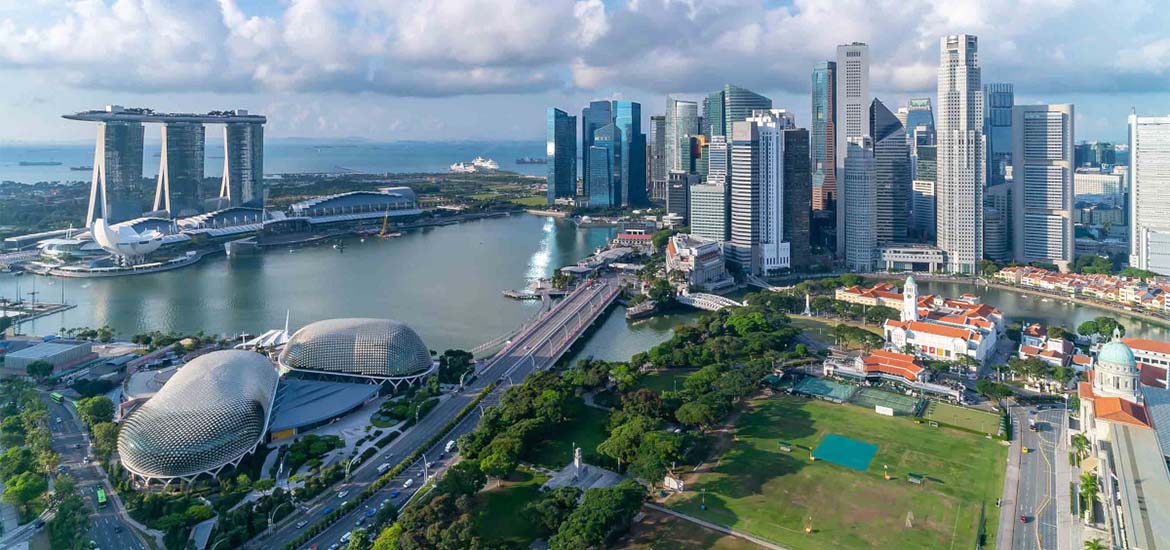Relocating to Singapore can be both thrilling and challenging, especially when it comes to finding the right place to live. This guide covers popular residential areas for expatriates, types of housing, rental market trends, lease agreements, and essential tips for securing suitable accommodation.
Popular Residential Areas for Expatriates
1. Orchard Road
- *Price Range: SGD 4,500 to SGD 12,000 per month for condos.
- Community: Orchard Road attracts a cosmopolitan mix, including international professionals, executives, and expatriates from diverse backgrounds. The area is popular among affluent expatriates who enjoy a high-energy urban lifestyle. It’s a hub for networking with other expatriates and high-net-worth individuals.
- Why Live Here? Known for its luxury retail stores, dining options, and vibrant nightlife, Orchard Road offers easy access to central business hubs and high-end amenities.
2. Holland Village
- *Price Range: SGD 3,000 to SGD 8,000 per month for condos.
- Community: Holland Village is favored by a diverse expatriate community, including young professionals and families from various backgrounds. The area has a strong presence of expatriates, including those from Western countries, and offers a relaxed, multicultural atmosphere.
- Why Live Here? Known for its trendy cafes, diverse dining options, and proximity to reputable schools and parks, Holland Village is ideal for families and individuals seeking a vibrant yet laid-back lifestyle.
3. East Coast
- *Price Range: SGD 3,500 to SGD 7,500 per month for condos.
- Community: The East Coast area is popular among expatriates who enjoy an active lifestyle. This area has a significant presence of expatriates from European countries, Australians, and other Western nations. It’s known for its family-friendly environment and outdoor recreational opportunities.
- Why Live Here? With its waterfront living, parks, and recreational facilities, East Coast is perfect for those who love outdoor activities like jogging, cycling, and water sports.
4. Sentosa Cove
- *Price Range: SGD 8,000 to SGD 25,000 per month for waterfront condos.
- Community: Sentosa Cove is known for its affluent expatriates and high-net-worth individuals. It attracts a mix of international and local elite, including expatriates from countries like the USA, UK, and China. The community here is exclusive and serene, with a high standard of living.
- Why Live Here? The exclusive waterfront properties, private yacht berths, and world-class amenities make Sentosa Cove a top choice for those seeking luxury and tranquility.
Housing Preferences by Community
- Indian Community: The Indian expatriate community is significant in areas like Serangoon and Little India. These neighborhoods offer a vibrant cultural atmosphere with Indian shops, restaurants, and places of worship. Serangoon is particularly popular among Indian expatriates due to its family-friendly environment and well-established community.
- Chinese Community: While Chinese expatriates are spread across various neighborhoods, Orchard Road and East Coast are notable for their substantial presence. Orchard Road is preferred by affluent Chinese expatriates who enjoy its proximity to luxury amenities and business hubs, while East Coast attracts families who appreciate the suburban lifestyle.
- Other Foreigners: Expatriates from Western countries, including those from the USA, UK, and Australia, are well-represented in Holland Village and Sentosa Cove. These areas offer a blend of modern amenities, international schools, and a cosmopolitan lifestyle that appeals to a diverse range of expatriates.
Types of Housing
1. Condominiums
- For Singles: Compact studios to 1-bedroom units, ranging from SGD 2,000 to SGD 5,000 per month.
- For Families of Four: Larger 2 to 3-bedroom units, priced between SGD 4,500 and SGD 10,000 per month.
- Why Choose Condos? Condos provide modern amenities such as swimming pools, gyms, and security features, making them a preferred choice for those seeking convenience and a communal lifestyle.
2. HDB Flats
- For Singles: 1 to 2-bedroom units, with prices from SGD 1,800 to SGD 3,500 per month.
- For Families of Four: 3 to 4-bedroom units, priced between SGD 3,000 and SGD 5,500 per month.
- Why Choose HDB Flats? HDB flats offer affordable living with a strong sense of community. They are ideal for expatriates who want to experience local living and enjoy close proximity to amenities.
3. Landed Properties
- For Singles: Generally, not ideal due to their larger size and higher cost.
- For Families of Four: Terrace houses, semi-detached houses, and bungalows, ranging from SGD 6,000 to SGD 15,000 per month.
- Why Choose Landed Properties? Landed properties offer more space and privacy, suitable for families or expatriates who value a private and spacious living environment.
Rental Market Trends and Lease Agreements
1. Rental Market Trends
- The Singapore rental market is influenced by economic conditions, demand and supply, and government policies. Rental prices have been rising, particularly in popular areas. The market is driven by expatriates, international students, and professionals seeking flexible living arrangements.
2. Lease Agreements
- Leases typically range from one to two years, with options to renew. Important aspects include rent amount, security deposit, maintenance responsibilities, and termination clauses. It’s advisable to review lease terms carefully and engage a real estate agent for a fair deal.
Tips for Finding Suitable Accommodation
1. Determine Your Budget
- Set a clear budget covering rent, utilities, maintenance fees, and relocation expenses. A defined budget helps narrow down options and avoid overspending.
2. Research the Neighborhood
- Investigate amenities, transportation links, schools, and community vibes. Visiting neighborhoods in person provides valuable insights for making an informed decision.
3. Engage a Real Estate Agent
- A knowledgeable agent can assist in finding properties, negotiating lease terms, and ensuring a smooth rental process. They offer access to a wide range of properties and expert advice.
4. Utilize Online Platforms
- Websites like PropertyGuru, 99.co, and iProperty offer comprehensive listings and virtual tours. These platforms help filter searches by location, property type, and budget.
5. Inspect the Property
- Schedule property inspections to assess conditions. Check layout, lighting, ventilation, and maintenance, and address any issues before signing the lease.
6. Understand the Lease Terms
- Review lease agreements thoroughly. Clarify ambiguities with the landlord or agent and ensure all terms are documented to avoid disputes.
Tips for finding suitable accommodation.
1. Determine Your Budget
Before beginning your search, establish a clear budget for your housing. Consider the following costs:
- Rent: Monthly rental payments should fit within your budget.
- Utilities: Include costs for electricity, water, gas, and internet.
- Maintenance Fees: Applicable for condos and some HDB flats.
- Transport Costs: Daily commuting expenses, if not walking distance.
2. Understand Commute Options and Times
Singapore has an extensive public transport network, including MRT (Mass Rapid Transit) trains, buses, and taxis. The average commute times vary depending on the mode of transport and distance:
- MRT: Most popular mode; typically, 30-45 minutes from residential areas to business districts.
- Bus: Can be longer due to traffic; 45-60 minutes on average.
- Car: Depending on traffic, 20-40 minutes for most commutes.
- Walking/Cycling: For nearby accommodations, 10-30 minutes.
3. Research Neighborhoods Close to Work
Identify neighborhoods within a convenient distance to your workplace. Here are a few options based on proximity to major business districts:
Central Business District (CBD)
- Tanjong Pagar: Short walking distance or 5-10 minutes by MRT.
- Marina Bay: Luxury condos with a 10-15 minute walk.
- Chinatown: 5-10 minutes by MRT or walking.
Orchard Road
- Newton: 5-10 minutes by MRT.
- Novena: 10-15 minutes by MRT.
- River Valley: 10-15 minutes by bus or walking.
One-North and Buona Vista
- Holland Village: 5-10 minutes by MRT.
- Queenstown: 10-15 minutes by MRT.
- Clementi: 15-20 minutes by MRT.
4. Use Online Property Portals
Utilize online property platforms such as PropertyGuru, 99.co, and iProperty to filter properties by proximity to MRT stations, price, and other amenities. These platforms often include details about commute times and transport links.
5. Visit Properties During Peak Hours
Schedule property visits during peak commuting hours (8-9 AM and 5-7 PM) to get a realistic sense of travel times and congestion. Pay attention to:
- Public Transport Access: Distance to the nearest MRT/bus station.
- Traffic Patterns: Observe traffic conditions if you plan to drive.
- Walking Routes: Check for safe and convenient pedestrian paths.
6. Consider Lifestyle and Amenities
Living close to work should not compromise your lifestyle preferences. Consider the following factors:
- Amenities: Proximity to supermarkets, restaurants, parks, gyms, and schools.
- Community: Neighborhood safety, noise levels, and overall vibe.
- Health Facilities: Availability of nearby clinics and hospitals.
7. Evaluate Housing Options
Choose the type of housing that best suits your needs:
- Condominiums: Offer amenities like pools, gyms, and security. Popular in central areas and near business districts.
- HDB Flats: More affordable and available in various locations. Ideal for those seeking a sense of community.
- Landed Properties: Suitable for larger families or those desiring more space and privacy. Typically further from business districts.
8. Red Flags to Avoid
When searching for housing, be mindful of these red flags:
- Unrealistically Low Rent: If the rent seems too good to be true, it likely is. Beware of potential scams or hidden issues.
- Lack of Transparency: If the landlord or agent is hesitant to provide information or rushes you to sign a lease, this is a red flag.
- Poor Maintenance: Signs of neglect, such as mold, pests, or structural damage, indicate potential ongoing issues.
- Unclear Lease Terms: Ensure the lease agreement is clear and comprehensive. Avoid vague terms or missing clauses regarding maintenance, deposits, or termination.
- Noisy Environment: Visit the property at different times to assess noise levels from traffic, neighbors, or nearby construction.
- Poor Connectivity: Ensure reliable internet and mobile network coverage, which are essential for work and personal use.
- Inconsistent Utility Supply: Check for consistent supply of water, electricity, and gas. Frequent outages can be a significant inconvenience.
9. Understand the Lease Terms
Thoroughly review the lease agreement before committing. Ensure you understand:
- Lease Duration: Typical leases are 1-2 years.
- Rent and Deposits: Monthly rent and security deposit requirements.
- Maintenance Responsibilities: Clarify who is responsible for repairs and maintenance.
- Termination Clauses: Conditions under which you can terminate the lease early.
Choosing the right housing in Singapore involves understanding the local market, exploring different property types, and being aware of rental trends and lease agreements. By researching popular areas, setting a budget, and engaging with real estate professionals, expatriates can find a home that suits their needs and enhances their living experience in Singapore.
*Price quoted in the article are only estimates pulled from several sources






